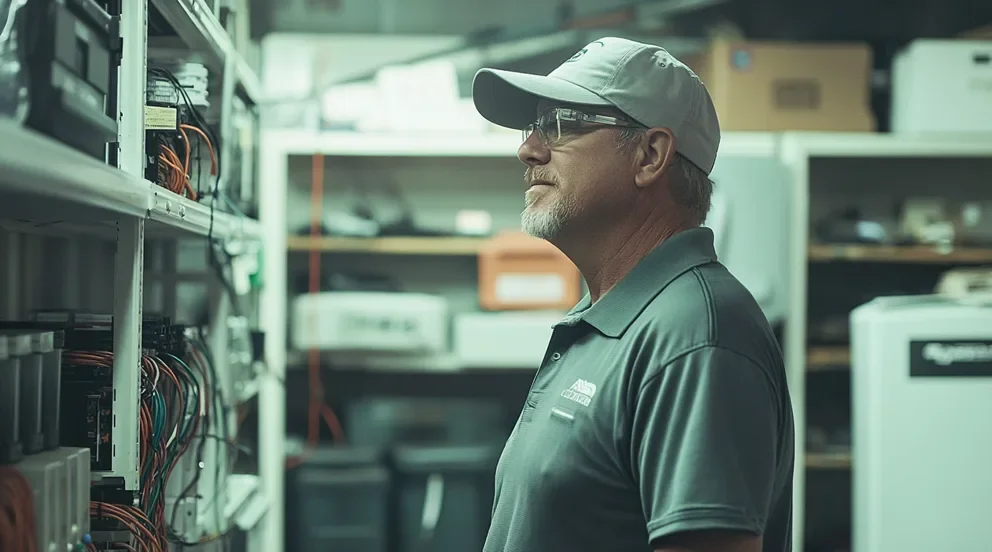The typical plumber’s income in the United States varies depending on the region, experience, and type of work. Generally, the median income for plumbers in the United States is around $51,000 per year. This figure includes wages from both salaried and self-employed workers. In terms of wages, plumbers in the United States earn an average hourly wage of $25.50 per hour. This rate can vary depending on experience, location, and type of job. For example, experienced plumbers in metropolitan areas can earn significantly higher wages compared to their counterparts in rural areas. Plumbers with specialized skills, such as those who can work on gas lines or install solar water heaters, can also expect higher wages.
Self-employed plumbers, on the other hand, can earn significantly more than their salaried counterparts. This is because they are responsible for their own taxes, insurance, and other business costs. They also have more control over their workload and pricing. Experienced self-employed plumbers can earn up to $80,000 per year. In addition to wages, plumbers may also receive bonuses and commissions for completing jobs. These can range from a few hundred dollars for a single job to thousands of dollars for larger projects. Overall, the typical plumber’s income in the United States varies based on experience, location, and type of job. However, the median income is around $51,000 per year, and those with specialized skills or who are self-employed can earn significantly more.
What type of jobs do plumbers typically do?
Plumbers typically perform a variety of tasks, including installing new fixtures and pipes, repairing existing fixtures and pipes, and performing maintenance and inspection of plumbing systems. They may also install and repair water heaters, garbage disposals, and other appliances. Plumbers typically use hand and power tools to complete their work. They may work with a variety of materials, including copper, plastic, galvanized iron, and steel. They also use specialized tools to measure, cut and join pipes, and they may use welding equipment to connect pipes.
Plumbers may also be responsible for installing and repairing gas lines, and they may work with specialized equipment such as gas meters and regulators. They also inspect and repair water lines, sewers, and other parts of the plumbing system. In addition to installation and repair, plumbers may also be responsible for cleaning and installing appliances, such as sinks and toilets. They may also perform maintenance on plumbing systems, such as inspecting drains and pipes for blockages, corrosion, or damage. Overall, plumbers typically install, repair, inspect, and maintain pipes and fixtures in residential, commercial, and industrial settings. They use a variety of tools and materials to complete their work, and they may also be responsible for installing and repairing gas lines.
What is the job outlook for plumbers in the United States?
The job outlook for plumbers in the United States is positive. According to the Bureau of Labor Statistics, the employment of plumbers is projected to grow by 8 percent from 2019 to 2029, faster than the average for all occupations. This growth is expected to be driven by an increasing need for plumbers due to population growth, aging infrastructure, and technological advancements. Plumbers in the United States are expected to benefit from a variety of job opportunities, as the demand for their services is expected to increase. In particular, plumbers are expected to be in high demand in the construction and building maintenance industries, as well as in the water and wastewater treatment industries.
The growing population and aging infrastructure in the United States also mean that there is an increased need for plumbers to maintain and repair existing systems. Furthermore, the development of new technologies, such as solar water heaters and automated plumbing systems, is creating even more job opportunities for plumbers. Overall, the job outlook for plumbers in the United States is positive. With an increasing demand for their services, plumbers are expected to benefit from a variety of job opportunities in the coming years.
What are the average benefits that plumbers receive?
The average benefits that plumbers receive vary depending on the company and the type of job. Generally, full-time plumbers are eligible for medical, dental, vision, and other insurance plans. They may also be able to participate in a retirement plan or have access to paid vacation time. Plumbers may also receive bonuses or commissions for completing jobs. In some cases, they may even receive additional compensation such as hazard pay, travel reimbursement, or tuition reimbursement. Ultimately, the exact benefits offered will depend on the employer’s specific policies. However, most employers offer some form of benefits to their employees in order to ensure their well-being and satisfaction with their job.
What are the educational requirements for becoming a plumber?
The educational requirements for becoming a plumber vary depending on the state and municipality, but most states require plumbers to be licensed. In order to be eligible for licensure, candidates must typically have a high school diploma or equivalent and complete an apprenticeship program under the supervision of a qualified master plumber. Apprenticeships generally include both classroom instruction and hands-on experience, and they can last anywhere from one to four years. During their apprenticeship, aspiring plumbers learn how to read blueprints and calculate material measurements, as well as proper safety protocols when working with hazardous materials such as natural gas. They also gain knowledge of plumbing codes in their area and learn how to diagnose problems with existing systems. Upon completion of their apprenticeship, plumbers can apply for a license and begin working in the field. In some cases, they may need to complete additional certification courses or exams before they are able to practice. In any case, becoming a plumber requires dedication and hard work in order to gain the necessary knowledge and experience to be successful in the profession.
What kind of certifications do plumbers need to have?
Plumbers typically need to have a variety of certifications in order to practice legally. These include certification in specific areas such as plumbing codes, safety protocols, hazardous material handling, and more. Additionally, some states may have additional requirements for plumbers to become licensed. For example, some states require plumbers to pass a written exam or complete continuing education courses in order to maintain their licenses. All of these certifications are important for ensuring that plumbers are knowledgeable and experienced enough to safely perform their job duties. They also help ensure that all plumbing jobs are completed according to the applicable codes and regulations. In any case, having the necessary certifications is essential for anyone who wishes to pursue a career as a professional plumber.
What type of safety protocols do plumbers need to follow?
Plumbers need to follow a variety of safety protocols in order to ensure their safety of themselves and those around them. This includes wearing proper safety gear, such as protective eyewear, gloves, and masks. They should also be aware of any hazardous materials they may come into contact with and take necessary precautions to avoid potential exposure. Additionally, plumbers should always check for signs of gas or water leaks before beginning work on any plumbing system. Finally, plumbers must strictly adhere to all applicable codes and regulations in their area when completing jobs. Following these safety protocols is essential for ensuring that all plumbing jobs are completed safely and efficiently. In any case, it is important that plumbers stay up-to-date on the latest safety protocols in order to protect themselves and those around them.
What steps do plumbers need to take to ensure their work is up to code?
Plumbers need to make sure that all of their work is up to code in order to ensure the safety and reliability of any plumbing system. This includes understanding the local building codes and regulations, as well as any specific requirements related to the job at hand. Additionally, plumbers should always double-check their work for accuracy and completeness before beginning a new project. It is also important for plumbers to stay up-to-date on any changes or updates with local code standards in order to remain compliant. Finally, it is essential that plumbers document all of their work thoroughly so that they can easily refer back to it if needed. Following these steps will help ensure that all plumbing jobs are completed according to the necessary codes and regulations.
How does the cost of living in different regions affect plumber wages?
The cost of living in different regions can have a significant impact on plumber wages. Generally speaking, plumbers who live in areas with higher costs of living will typically earn higher wages. This is because employers need to compensate their employees for the additional expenses associated with living in those areas. On the other hand, plumbers who live in more affordable parts of the country may not need to be paid as much since their overall expenses are lower. Therefore, it is important to understand the cost of living in your area and factor that into any negotiations when it comes to salary or wage rate. In any case, understanding how regional costs affect pay can help ensure that you are fairly compensated for any job that you take on as a professional plumber.
What is the best way for plumbers to find new clients?
The best way for plumbers to find new clients is to market themselves effectively. This can include creating a website or portfolio that showcases their services, as well as joining online directories and using social media platforms to reach out to potential customers. Additionally, attending local trade shows or networking events can also be beneficial for plumbers who are looking to meet new contacts in the industry. Plumbers should also utilize word-of-mouth marketing by asking current clients for referrals or building relationships with other professionals who may need plumbing services. Finally, offering discounts or promotions on services can be an effective way of attracting new business. Following these tips will help ensure that plumbers have a steady stream of work and stay busy throughout the year.
What are some common mistakes that plumbers make?
Some common mistakes that plumbers make include not properly assessing the job before beginning work, cutting corners on safety protocols, and overlooking important details in the installation process. Additionally, some plumbers may also take risks by attempting to fix problems outside of their area of expertise. Furthermore, failing to research local plumbing codes or ask for help when needed can lead to costly mistakes down the line. Finally, not charging appropriately for their services is another mistake that many plumbers make which can hurt their bottom line over time. It is important for plumbers to recognize these potential pitfalls and strive to avoid them so that they can provide quality services while still making a profit.
What are some tips for plumbers to increase their income?
Some tips for plumbers to increase their income include diversifying the services they offer, charging an appropriate rate for their labor, and taking on additional projects. Additionally, offering incentives or discounts such as warranties or loyalty programs can also help draw in new customers. It is also important to keep up with industry trends so that you are able to provide clients with the latest advancements in plumbing technology. Furthermore, continuing to invest in professional development by attending workshops or seminars will ensure that plumbers stay current on best practices and remain competitive within the industry. Following these steps will help plumbers increase their income and ultimately grow their business over time.



